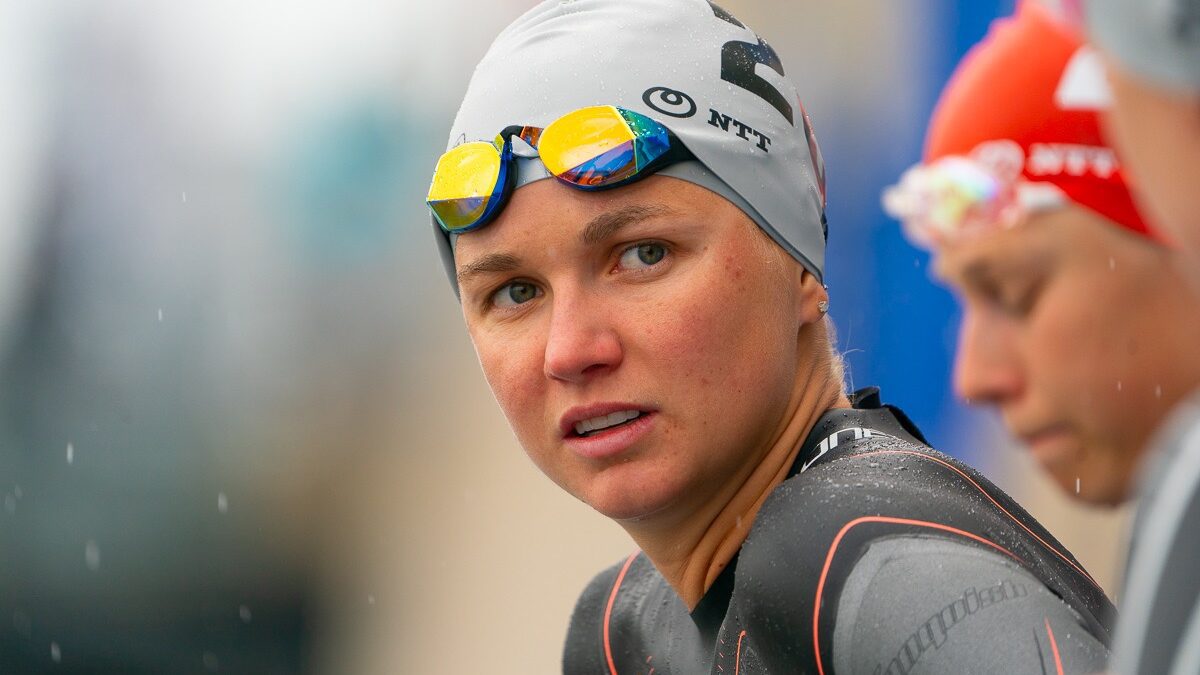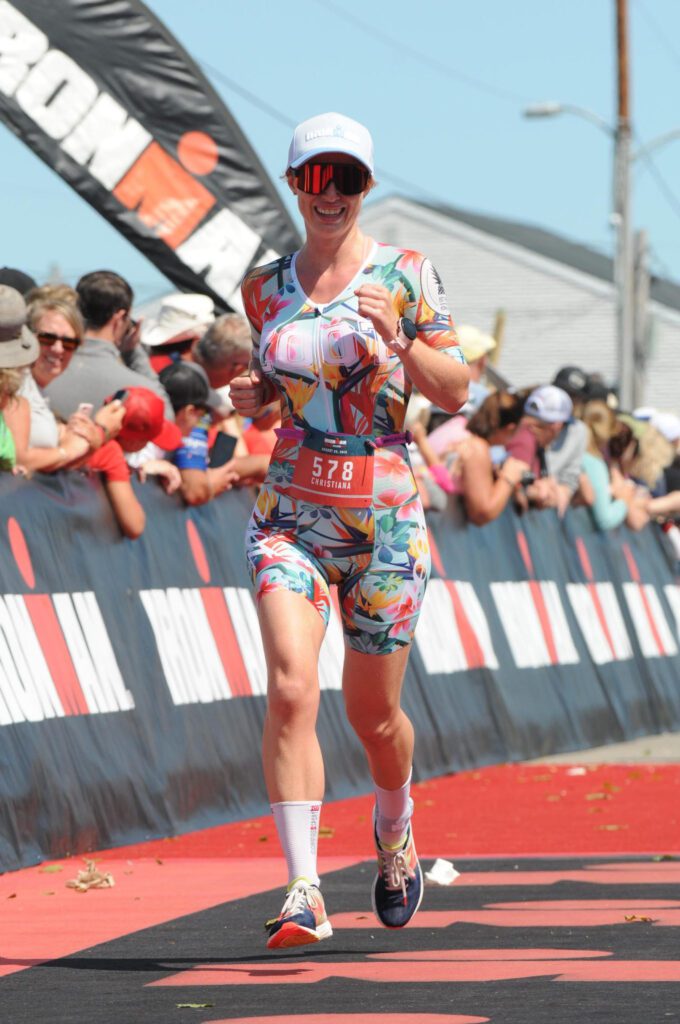3 Ways you can improve your mental toughness
A Quebec triathlete's research shows how "you can develop your inner resources to navigate any stress that you encounter."
 Photo by:
Kevin Mackinnon
Photo by:
Kevin Mackinnon
The summer of 2018 was so hot and dry in Europe that Swiss cows were keeling over from heat exhaustion, and smoke from Scandinavian forest fires blackened the skies. So, who would have dreamt that in Zell am See in the Austrian Alps in late August, Ironman 70.3 organizers would be forced to cancel the bike leg by wintry weather. Temperatures had suddenly plunged, and on race day, sleet turned to snow. The steep switchbacks were ice-covered and simply too dangerous to navigate safely.
When that announcement was made before the scheduled race start, dozens of disappointed athletes trudged off to collect their bikes. Of the 2,604 triathletes who’d signed up, 585 didn’t even start. The rest of us milled around in wetsuits, drinking coffee, waiting for an update. Some found a quiet place to sit out the rain, eyes closed in meditation. For close to three hours, I swatted away my pre-race butterflies, rethinking my goal of conquering 90 km of mountain roads. By the time the gun went off, the rain was a mere drizzle, the lake flat and warm as bathwater. Then the sun burst through the clouds, and I charged around the lake on fresh legs, thrilled by the sight of the snow-covered mountains, clocking my best-ever run time.
Looking back, I see how that race in Zell am See was a textbook case in exercising mental toughness. Why, when faced with a stressor like a sudden change in conditions, do some people not even make it to the start line, while others adjust their goals, grit their teeth and keep going?
That is precisely the question Christiana Bédard-Thom first asked herself in 2015, early in her graduate studies in psychopedagogy at Université Laval in Quebec City. She’d gone to Mont-Tremblant to watch her boyfriend, Alexandre Beaulieu, compete in his first Ironman 70.3 race.
She loved everything about the event: the adrenaline-charged atmosphere, the roar of the Snowbirds as they zoomed above the lake in formation at the race start, the grit and determination of participants.
“I was completely amazed by these athletes reaching their goals, pushing through their limits,” she recalls. A recreational runner, she decided then and there to become a triathlete. It meant learning to swim, conquering her lack of self-confidence on the bike and stepping up her running mileage.
“I started training, and I realized what was getting in the way was my mindset,” she said. She would push herself, day in and day out, then she would show up at a 5 km race and do poorly.
“I need to figure out what’s happening and why I’m hindering my own performance,” she decided, scouring the internet for answers.
“There are tonnes of books, tonnes of blog posts — it’s a huge field — but there is no agreement on what mental toughness is,” she concluded. “If nobody knows what it is, how am I supposed to build it?”

Eight years and a PhD thesis later, Bédard-Thom has helped to come up with a model to figure out just what makes someone mentally tough, how that strength influences performance and how it can be honed, like any other aspect of race readiness. In a study published last December in the International Journal of Sport and Exercise Psychology with Frédéric Guay and Christiane Trottier, she described three pillars of mental toughness: setting challenging yet attainable goals, self-efficacy (or a belief in one’s ability to meet those goals) and self-control (resisting the impulse to ease up or quit). She then tested that model in a couple of scientifically rigorous ways, including under laboratory conditions, with real athletes of all levels on stationary road bikes connected to Computrainers.
Bédard-Thom put 74 cyclists and triathletes through a 20-minute all-out time trial — for some of them, after having mentally tired themselves out by solving a series of cognitive puzzles on tablets. Halfway through the time trial, the screens feeding the athletes their elapsed time and power and other data flickered out for two minutes, leaving the study participants with only their perceived effort to tell them how they were doing. As Bédard-Thom had hypothesized, those who attained their objective power threshold despite the stressor of the unexpected blank screen were those with the “higher mental toughness resources.”
Given five years to live, Patrice Brisindi is making the most of his Ironman race time
Key to her findings is that mental toughness is not an innate trait: it is something that fluctuates, depending on how tired you are or how prepared you are for encountering obstacles, and it can be developed through conscious effort, “like a muscle,” she says.
Setting goals for yourself that are too difficult for your level of training can be counterproductive, Bédard-Thom concluded. Her own early days as a triathlete back that up. By the time she made it to her second 70.3 race in Maine, in 2019, she was more mentally nimble. That helped her as she stood on the beach looking out at the metre-high waves that translated into a swim that was 10 minutes slower than what she had managed at the same event a year earlier.
“On that starting line, I just set a different goal for myself,” she said. She knew the race would not be a personal best, but still, she managed to slice nearly nine minutes off her run time.
When it comes to self-control, it helps to make sure you come to the race well-rested, mentally as well as physically. And Bédard-Thom suggests practising mindfulness techniques to stay grounded.
“I have routines and rituals I put in place to stay calm and in a relaxed state,” she said. “I know that my self-control will be maximized if I need to use it in a race.”
As for what she calls “self-efficacy,” you can encourage it by engaging in positive self-talk, Bédard-Thom says. Find a phrase that you use in training, for instance, then repeat that phrase like a mantra in the race to get you through the tough parts, like the uphills on the run.
Since completing her doctorate in 2022, Bédard-Thom has thrown her abundant energy into an e-commerce pizza supplies business with her partner Alex Beaulieu, and together, they are training for their first marathon next fall.
She says her “research journey” has informed her work as an entrepreneur and as a motivational coach for others in business.
“Knowing that you can develop your inner resources to navigate any stress that you encounter,” she says, helps not just in races, but in every aspect of life.
This story originally appeared in the July issue of Triathlon Magazine. Loreen Pindera is a regular contributor and an avid triathlete from Montreal.
